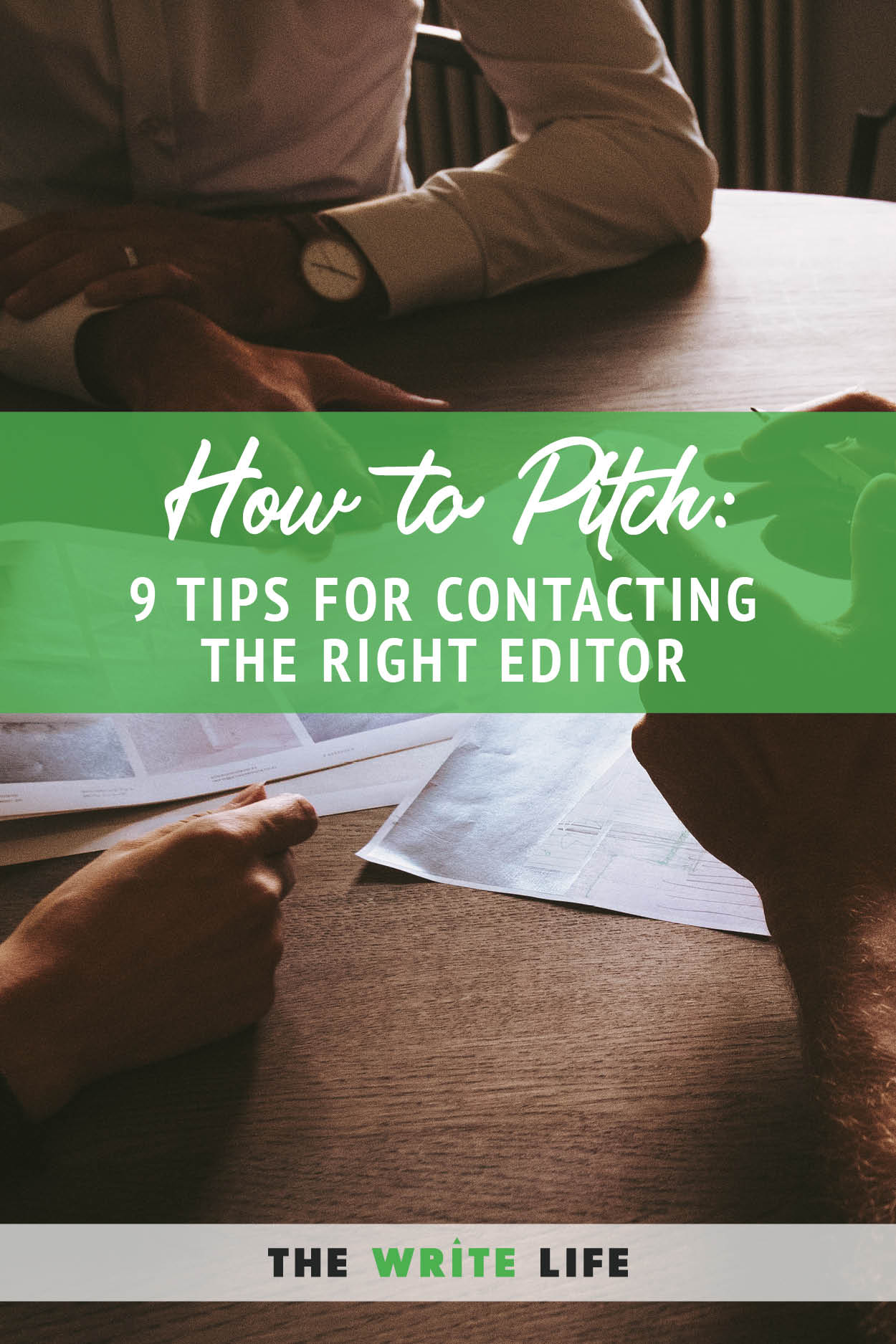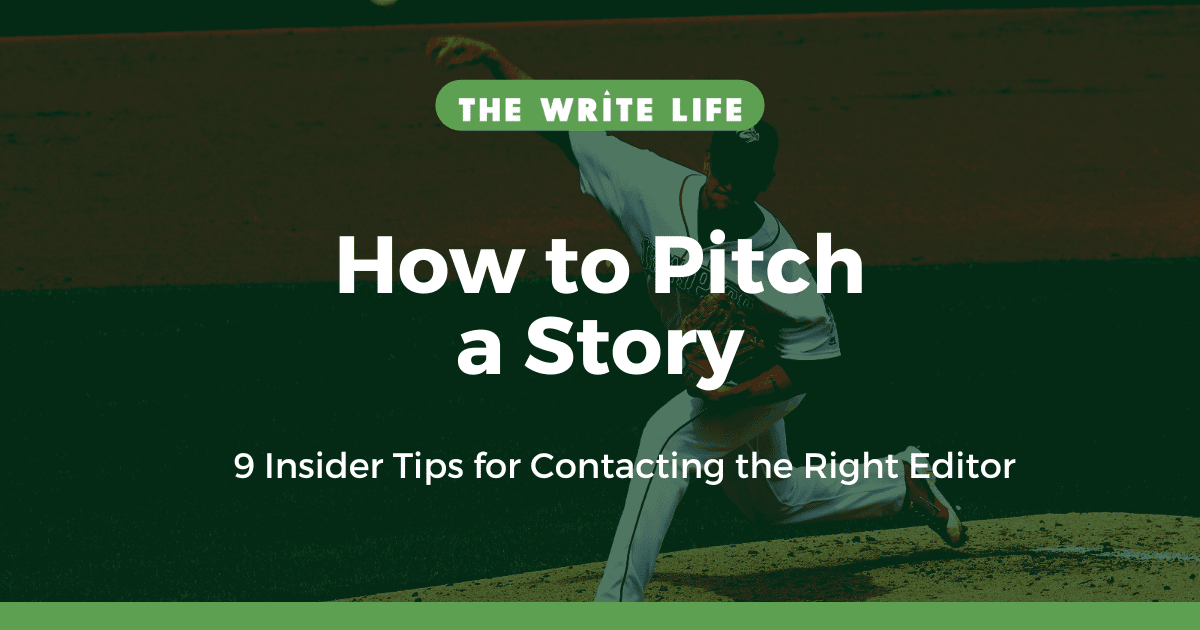You’ve got a fantastic idea for a story. You even know which publication or website it’s perfect for.
The only problem? You have no idea who you should pitch — or how to get in touch with them.
Figuring out which editor to contact — and finding that editor’s email address — can be a frustratingly time-consuming aspect of freelance writing. But it’s oh-so-necessary if you want to see that story published.
How to pitch a story to an editor
Don’t despair; there are a few tricks for making the process easier. All it takes is some sleuthing — after a while, you may even find the process fun! (I’m not the only one who does a little victory dance when I finally get in touch with the right editor, am I?)
In this post we’ll review both how to figure out which editor to pitch, and then tricks for finding that person’s email address, so you can place and get paid for more pieces.
To kick us off, here are some ideas for how to identify which editor to pitch.
Table of Contents
1. Get as specific as possible
Unless it’s a really small publication, avoid pitching the editor-in-chief; she’ll probably just delete your email.
Instead, try to find the editor who oversees your story’s beat. If you’re writing about an up-and-coming clothing designer, for example, look for the fashion or style editor. The easiest way to determine this is to Google “Real Simple fashion editor,” or “Real Simple masthead” and then search for “fashion” or “style.”
If you can’t find that information, “Go for a senior, deputy, or associate editor,” says freelance writing expert Linda Formichelli. “If that editor isn’t the right one, she’ll often send your query along to the correct editor.”
She says not to bother with contributing editors or copyeditors, as they’re not responsible for assigning stories.
2. Call the publication
This may sound old-fashioned, but it works. If your target publication has a phone number listed, call and ask to be connected to the relevant department. Once you have someone on the line, ask, “Who should I contact with a pitch about travel to Greece?” Easy peasy.
“I sound like a broken record…‘Pick up the phone! Pick up the phone!’” says Formichelli. “Many of my students are pleasantly surprised that they get a quick answer.”
3. Ask your contacts
If you’re a member of any online writing groups, ask your fellow members if they have a contact at your target publication. If they’re familiar with your work, they may even be willing to introduce you over email—bonus points!
“Be sure to supply your email address on the forum or invite direct messages so respondents won’t have to share the info with the whole group,” suggests Formichelli.
4. Search Twitter
Smaller websites and publications may not publish a masthead. One of the best ways to find otherwise-unlisted editors is through Twitter, since users often list their place of employment in their bios. In Twitter’s search tool, type in the word “editor” plus the @handle of the publication you’re targeting.
Some editors even prefer to be pitched on Twitter before moving the conversation to email, so it doesn’t hurt to send a direct message.
If you’re really keen to make a connection, you might even create what The Write Life founder Alexis Grant calls a Notice-Me List, then strategically interact with editors you want to write for.

5. Join Freelance Writers Den
Yes, you’ll have to pay for a monthly membership, but for serious freelance writers, it’s worth it. You’ll get access to courses, ebooks, podcasts, and trainings to help you know who to pitch, how to pitch them, and how to uplevel your rates as a freelance writer. Ultimately, you’ll learn how to grow your freelance writing income and you’ll be surrounded by a community of freelancers who can inspire, encourage, and give advice along the way.
And don’t forget, this is self-education, which means the fee is tax-deductible in many countries!

Next up: Tips for finding that editor’s email
Once you’ve figured out which editor to pitch your story to, you’re well on your way! But how the heck do you find that person’s email address?
Here are a few tips for getting your hands on the editor’s email.
6. Use Google’s advanced search
Don’t skip this step just because it seems too easy.
Search “Jane Doe email address,” and it could pop right up. You could also try searching “[email protected]” to see if you get any hits.
And remember, while most of us stick to the search box on Google’s homepage, the search engine offers many more ways to find what you’re looking for. If you really want to milk Google for all it’s worth, try these advanced tips for using Google search from Lifehacker.
7. Try Sales Navigator for Gmail
This used to be called Rapportive before it was acquired by LinkedIn. Now there’s both a free and premium version. The Gmail extension shows the social media profiles of whoever you’re emailing right in the sidebar of your Gmail account, which is useful for brand building and general networking — and pure gold for finding email addresses.
When searching for an editor’s email address, start typing different name combinations into the “To” field, like [email protected], [email protected], [email protected], and [email protected]. If she uses her work email for her LinkedIn profile, her name and photo will pop up when you’ve hit the jackpot.
8. Look on LinkedIn
Do more than just glance at their profile. Dig a little. It’s becoming more common for LinkedIn users to include their email address either in their contact information section or at the bottom of their introduction note. Look deep in their profile and you might find an email address.
LinkedIn also has a direct message feature, but chances are you’ll have to upgrade to premium to send a message to someone who’s not your connection.
While you’re there, look to see if anyone you know is connected with this editor. Maybe they’ll make an introduction for you!
9. Find the editor’s colleagues
If you’re still coming up short, try to find an email address for a colleague at the same publication. In a post for The Muse, Grant calls this one of her “absolute favorite hacks.”
She shares this example: “Say you found one of Joe Schmo’s colleagues, Mary King, and her email is [email protected]. Knowing that, you can easily guess what Joe Schmo’s email might be: [email protected].”
Next step? Pop it into your Gmail extension to see if you’ve got a match. (Note that just because it doesn’t appear doesn’t mean it’s a no-go; some editors may use their personal email addresses for their LinkedIn profile.)
You can also simply try sending your pitch and see if the email goes through. You never know, you might get lucky!
The Write Life regularly updates and republishes posts so they are more useful and relevant for our readers. We updated this post in 2022.







